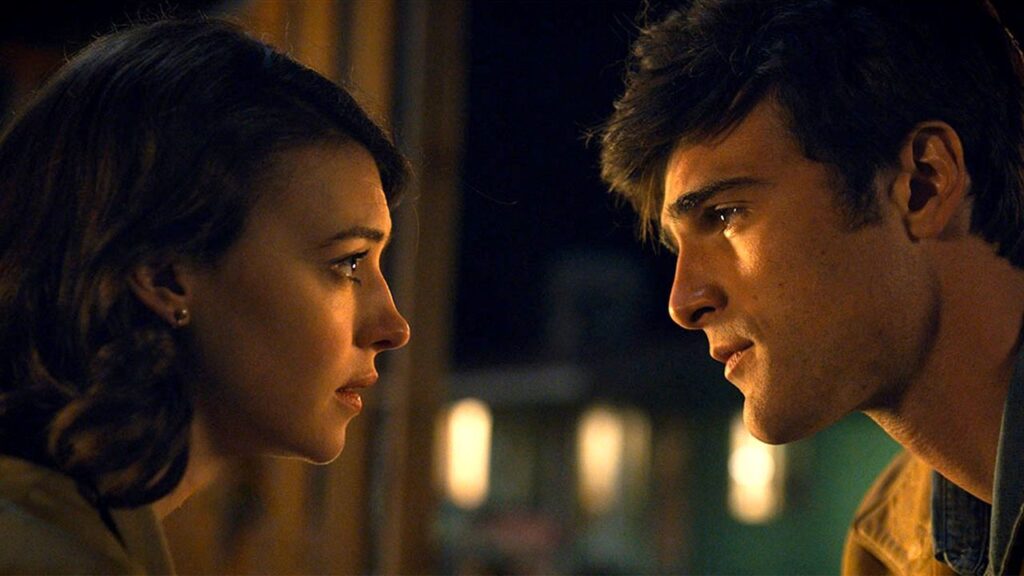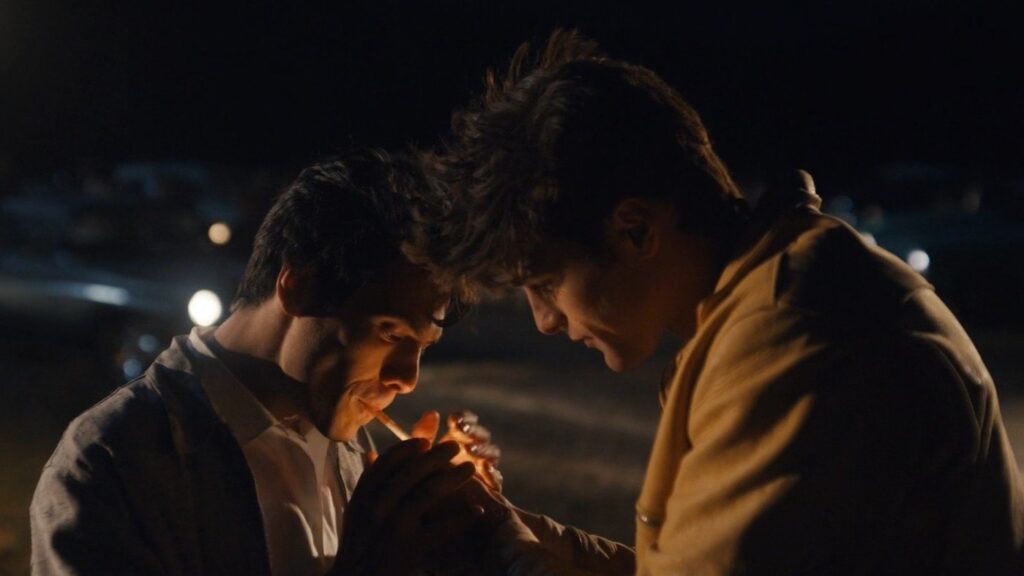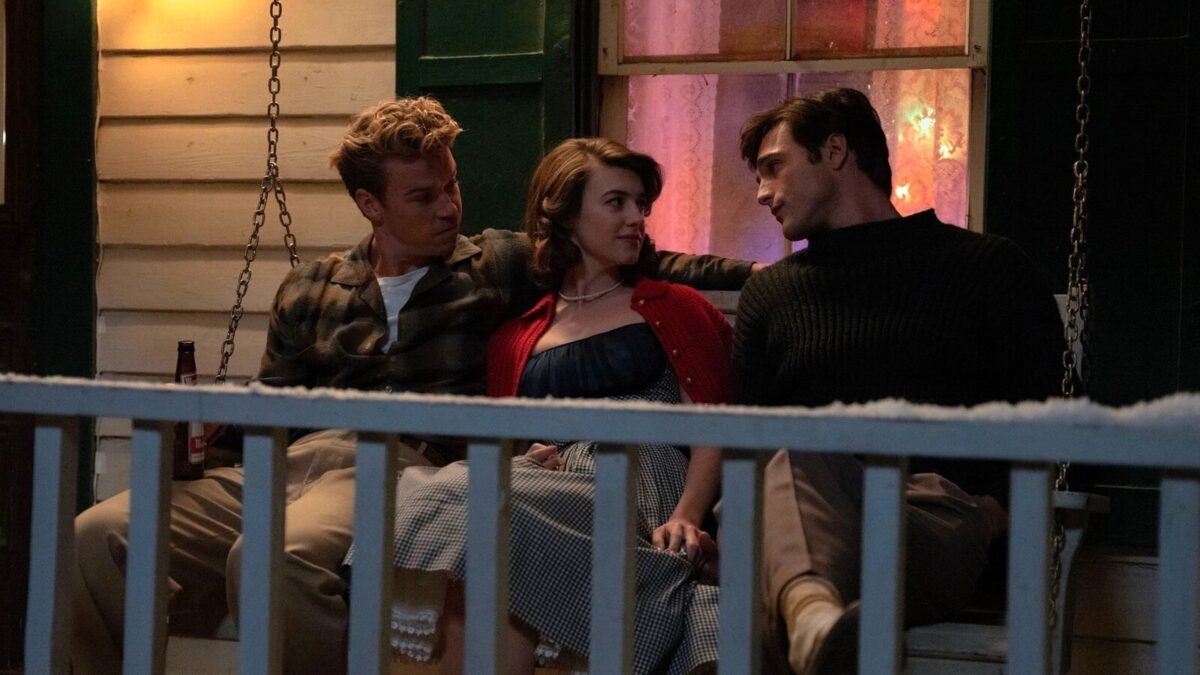Couldn't drag me away
Read even a few articles about the movie business and you’ll inevitably encounter lamentations of the disappearing middle class of cinema. Hollywood doesn’t fund mid-budget movies anymore, most especially comedies and prestige dramas. (And lately, there’s been talk of a vanishing lower-class too; Blumhouse is apparently pumping the brakes on rapid-fire low-budget theatrical horror, the very reason they exist in the first place.)
The reasons for this are complicated, but also kind of simple: television. Over the past two decades, adult audiences have increasingly embraced arty TV shows as replacements for nights out at the theater, prompting elite actors and filmmakers to follow. I mostly see this as a net negative for entertainment: stories once designed for a single two-hour sitting are now bloated into eight-hour commitments. I have a full-time job and two kids. Give me a break, Hollywood. If Sirens was 100 minutes, I’d have watched it the week it dropped; as a five-episode miniseries of hourlong episodes, it’s in my “maybe” pile.
Then along comes something like On Swift Horses, and suddenly I’m thinking… maybe TV should just stay TV. Because this film is clearly television. Directed by Daniel Minahan, primarily known for TV work, it looks like something you’d stumble upon browsing Apple TV+. It’s never unpleasant, but it also never even remotely cinematic. The film is painless and occasionally even gripping, but it stirs none of the sensations its premise promises: On Swift Horses is never erotic, never provocative, never tragic, never heart-stopping. Ironically, what it needs is the exact value TV offers: breathing room for characters to sharpen and develop beyond the checklist of plot points and motivations they need to hit before credits roll. So, maybe I’m losing my mind and don’t know what the hell I want in this world after all.

Set in post-Korean War America, On Swift Horses follows Muriel Edwards Walker (Daisy Edgar-Jones) and her husband Lee Walker (Will Poulter) starting fresh in California. Lee long dreamed of growing old as neighbors and business partners with his enigmatic younger brother Julius (Jacob Elordi) with whom Muriel shares an instant and dangerous connection. But Julius instead drifts off to Las Vegas, finding work in a casino and unexpected love in his male co-worker, Henry (Diego Calva). Meanwhile, Muriel stumbles into her own quiet rebellion as she resists the symbolic gesture of selling her mom’s old house. She begins betting on horse races and forms a bond with Sandra (Sasha Calle), a neighbor who is perhaps too openly lesbian for the late 1950s.
The movie is… fine. It has a functional narrative and professional polish, hinting at a fiery melodrama of confused sexuality and shifting romantic intrigue. But in execution, On Swift Horses is oddly restrained and calculated. The second half throws in several eye-roll-inducing “oh, come on” twists while still pulling a few of its biggest punches, culminating in a finale that strives for ambiguous but lands as half-hearted.
Part of the trouble is that the film can’t really decide what genre or storytelling mode to settle into. Is it a passionate one-who-got-away drama, with Julius and Muriel the misunderstood souls truly seeing each other in ways no one else can? (If so, they need more shared screen time.) Or is it an exploration the blurry edges of sexuality and identity amid stifling postwar conformity? Heck, maybe it’s just a juicy, sexy soap opera, with betrayals and surprise kisses and hookups. In practice, it’s not really any of these. The central conflict of Muriel’s and Julius’s queer awakenings have neither passion nor much thematic purpose behind them.

The cast is uniformly attractive but fails to leave an impression individually or ignite much chemistry together. Elordi is undeniably hunky, locked-in and ready for prime-time on a CW drama. (I just had to Google to confirm CW still exists.) Edgar-Jones, outrageously pretty but somewhat vacant, can’t quite pull together the disparate threads of Muriel’s character into anything coherent, though admittedly the script doesn’t offer her much help. Poulter auditions convincingly here as a future character actor. He’s a bit too baby-faced and narrow-framed for his role as a Greatest Generation bedrock type, but holds his ground well enough. Diego Calva (still fresh on my mind from his all-time great reaction faces in Babylon) is clearly the standout talent of the bunch, even if the material barely gives him room to show it.
The film earns its R-rating with a smattering of sex scenes, mostly same-sex, yet oddly devoid of steam and passion. The intimacy is not sterile, exactly, but you won’t find yourself craving a post-viewing cigarette.
I realize this review has come across overwhelmingly negative, but I should be clear that I am, in fact, ambivalent: On Swift Horses is fundamentally competent. Despite the choppiness of the drama and lack of surprise in the character development, the narrative is comprehensible enough, and the film at least avoids ever looking like streaming slop. This is lit and shot like a real movie, even if a conventional one.
Ultimately, I find myself almost liking it out of sheer hunger for honest-to-God, mid-budget domestic dramas willing to reckon with mature themes unironically. But On Swift Horses never quite develops into anything beautiful or cinematic. Mostly I spent the runtime pondering how much it resembles TV and how much TV has taken from us movie-lovers.
Is It Good?
Nearly Good (4/8)
Dan is the founder and head critic of The Goods. Follow Dan on Letterboxd. Join the Discord for updates and discussion.


2 replies on “On Swift Horses (2024)”
TV has kind of ruined everything, including TV. I really miss shows that meaningfully had those old-fashioned things called “episodes” (even Breaking Bad did!), and of course the meeting in the middle between “cinematic” TV and the collapsing aesthetic standards of film has been a pretty bad thing, maybe even for both, considering I prefer to look at e.g. Star Trek: TNG to any later Trek show or, probably, even something as relatively well-mounted as Game of Thrones or House of the Dragon. This isn’t even to get into sitcoms. Though The Good Place still had episodes!
Well said. I watched Superstore with my wife a couple of years ago, and every time the show started, a sense of wonder came over me (and it’s not even that great of a show). Whoa! A real life sitcom! With episodes new enough to make jokes about COVID!